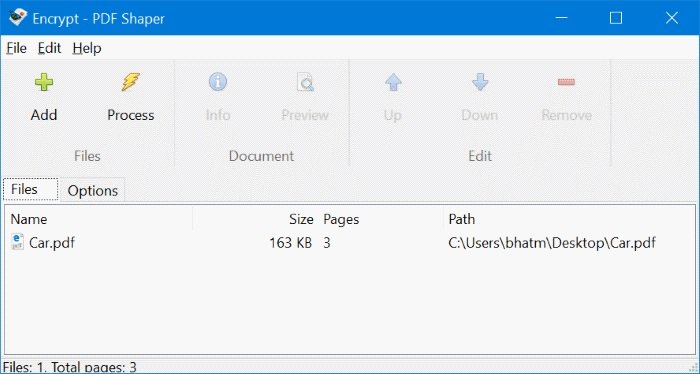

They will serve as key data sources for the development of Artificial Intelligence. These datasets, to be identified within a thematic range described in the Annex to the Directive, have a high commercial potential and can speed up the emergence of value-added EU-wide information products.
Pdf shaper file could not be opened free#
The Open Data Directive requires the adoption by the Commission, via a future implementing act, of a list of high-value datasets to be provided free of charge. strengthen the transparency requirements for public–private agreements involving public sector information, avoiding exclusive arrangements.New rules will also facilitate the re-usability of research data that is already contained in open repositories. Research data resulting from public funding – Member States will be asked to develop policies for open access to publicly funded research data.Charges for the re-use of such data can be above marginal costs for dissemination In principle, the Directive will only apply to data which the undertakings make available for re-use. Data held by public undertakings, under a specific set of rules.limit the exceptions which currently allow public bodies to charge more than the marginal costs of dissemination for the re-use of their data.stimulate the publishing of dynamic data and the uptake of Application Programme Interfaces (APIs).Once fully transposed on the national level, the new rules will: The Directive is built around 2 key strands of the internal market: transparency and fair competition. It does not apply to the educational, scientific and Open Data Directive The Directive covers written texts, databases, audio files and film fragments. This includes material held by ministries, state agencies, municipalities, and organisations funded mostly by or under the control of public authorities such as meteorological institutes.Ĭontent held by museums, libraries and archives also falls within the scope of application of the Directive following the revision in 2013. It addresses material held by public sector bodies in EU countries, at national, regional and local levels. It encourages EU countries to make as much information available for reuse as possible. The PSI Directive focuses on the economic aspects of the re-use of information rather than on access to information by citizens. Negotiators from the European Parliament, the Council of the EU and the Commission reached an agreement on the revision proposed by the Commission in January 2019. When adopted in June 2019, the Directive was renamed as the Open Data and Public Sector Information Directive and will make public sector and publicly funded data re-usable. The European Commission opened a public online consultation on the review of Directive 2013/37/EU, which amended the PSI Directive.īuilding on the results of the consultation, together with an extensive evaluation of the Directive and an impact assessment, a proposal for a revision of the Directive was adopted by the European Commission on 25 April 2018. The review process that led to the adoption of the Open Data Directive was launched in 2017. The Directive on open data and the re-use of public sector information, also known as the Open Data Directive, entered into force on 16 July 2019, replacing the Public Sector Information (PSI) Directive.


 0 kommentar(er)
0 kommentar(er)
